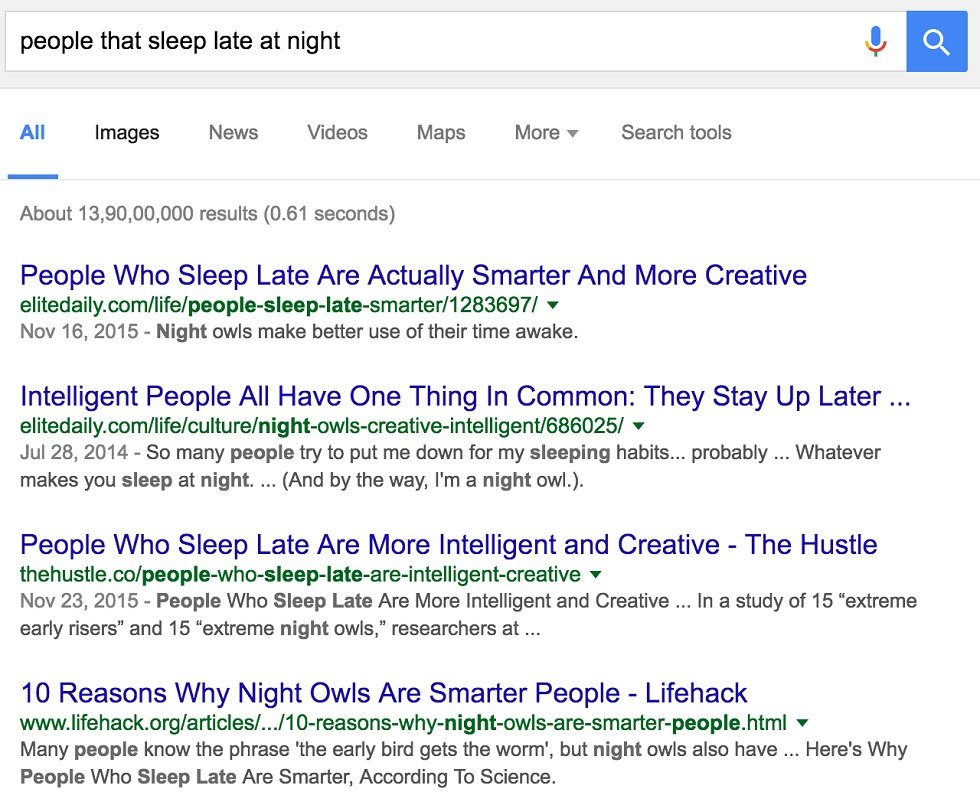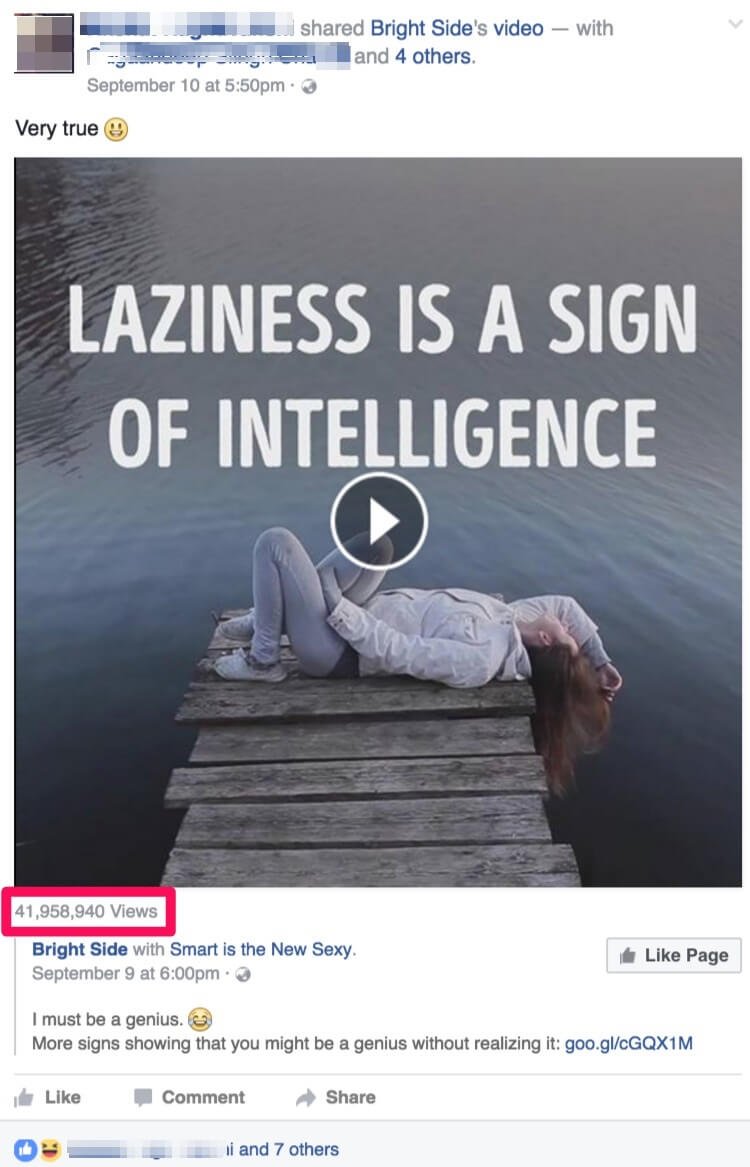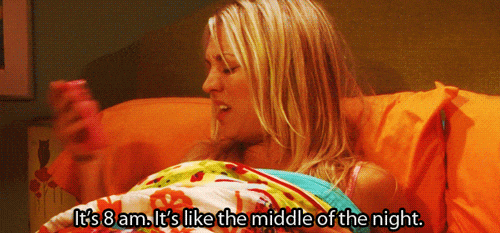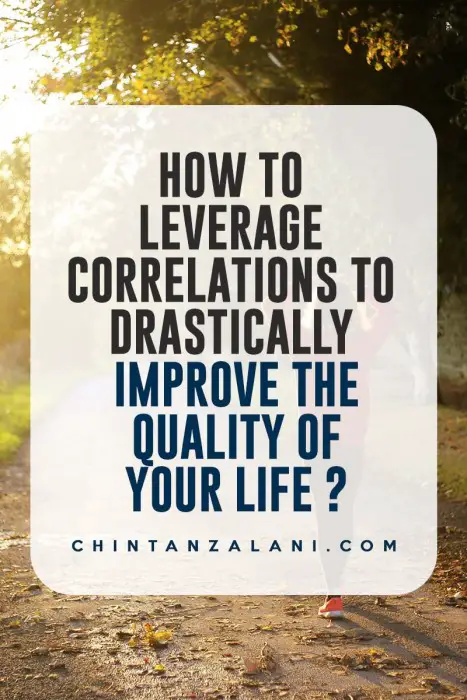
Filter nonsensical correlations from the ones that matter.
“People Who Have More Sex Make The Most Money.”
That was the attention-grabbing headline floating on all major media outlets in August 2013. Search for the exact phrase yourself to look at the mammoth number of articles.
Obviously, people went crazy. And the articles garnered tremendous attention with thousands of views and comments. The articles said, that people who have sex more than 4 times/week take home a 3.2% higher income than those that have sex once a week.
If only it were that simple…
Sure, the findings were adopted from this discussion paper at the Institute for the Study of Labor, in Germany. But news outlets conveniently ignored the following disclaimer from the bottom of the second page:
“IZA Discussion Papers often represent preliminary work and are circulated to encourage discussion. Citation of such a paper should account for its provisional character. A revised version may be available directly from the author.”
Now, I am all in for science experiments that find links between health and our everyday activities. But wouldn’t it be intelligent to avoid oversimplifying correlations and not forgetting the other variables?
For the current wage study, the data was merely based on a survey. Here’s how the author Nick Drydakis describes it : “random telephone-based surveys to approximately 7,500 households” in Greece.
Scientific studies are often a result of years of blood, sweat and tears. But your everyday behavior shouldn’t get intrinsically based on such sensational sound bites.
You might even be called ‘smart’ and ‘creative’ by your family just because you’re up late at night (happened with me!)

The first article in the results at Elite Daily has fucking 1+ million shares. Ah! so much for self-deception.
Here’s the truth:
You might feel good momentarily, but you’re fooling yourselves by sharing such observations.
So today, let’s look at how you can filter utter nonsensical correlations from the ones that matter. You’ll see examples of many everyday correlations as well.
Let’s start by looking at the kind of relationships that might exist between 2 variables.
6 possible relationships between two variables
There can be much more complex links between two events than those that meet the eye, right?
Broadly speaking, correlated variables move in the following 3 ways:
• Increase together (positive)
• An increase in one variable lead to decrease in other (negative)
• Variables don’t affect each other
Don’t leave yet plisss. If you hate Mathematics, here’s a cool gif for you:

But even these 3 ways can result in more varied patterns. Let’s explore the relation between an innovative idea and its potential to become a billion-dollar company. Here’s how the relationship might pan out:
1. Innovative ideas lead to billion-dollar companies
2. Billion-dollar companies have innovative ideas
3. Innovative ideas and billion-dollar companies are both a result of a terrific founding team. But innovative ideas and billion-dollar companies have no relation
4. Innovative ideas lead to billion-dollar companies. And billion-dollar companies are a result of innovative ideas
5. Innovative ideas actually help in attracting capital. And high capital influx helps in easily growing a company to billion-dollars
6. Innovative ideas and billion-dollar companies are coincidentally correlated. But don’t have any connection.
This list isn’t exhaustive. I just wanted to show you that even if two variables are correlated they can move together in a multitude of ways.
In my opinion, the sixth pointer is the most accurate description of the above case. Because scaling a company to a billion-dollar entity requires much more than an innovative idea. You definitely need a great team, hard-working employees, a visionary leader and of course, luck.
Maybe you also need hundreds of other unknown factors in your favor. Because if there were a simple billion-dollar company creation formula, then millions of startup enthusiasts might have already built unicorns. Further, what worked in one industry for a company today might not make the cut across all industries.
Forget small scale observations. Even when your dataset is huge, statistically significant and covers a vast array of possibilities…
A strong association between two variables doesn’t prove causation.
A great example is Google’s attempt (Google Flu Trends) to predict flu outbreak based on high traffic for certain search phrases. Now you might think that due to the huge volume of big data, the search giant can easily infer such powerful insights.
Not so fast.
GFT overestimated the prevalence of flu by over 50%.

So you need to explore the relationship more deeply. Only a proper analysis in a controlled environment will present a holistic picture and can confirm causation. We get into the details in a later section.
What should you do when you spot a weird correlation?
Hey there…
Do you love hitting the snooze button every day and sleepin’ in till 11 am on weekends?
Congratulations then:
You’re a smarty pant!
At least that’s what a video repeatedly popping up in my newsfeed said. And it fairly resonated with people, considering that it had already crossed 40 million views.

It feels great to find causal links between your personal characteristics and a positive quality. Especially, if that characteristic is viewed negatively by others – as in the above case.
But have you ever checked the basis for such doofus content before sharing them with your social media friends?
Here’s the method section of the research paper on which the above video was based upon.

So based on an online survey of 60 students at the Appalachian State University we can all feel proud of our laziness —– Yay!
Scan the study yourself here.
The internet has democratized the process of finding information. And this has turned out to be great in many ways, as we get to access nerve-wracking shit by tapping a few buttons.
But simultaneously there are many media companies that solely rely on bulk publishing articles. Their business model relies on garnering more views. So content creators are shoved with strict deadlines to publish on any trending subject. Sometimes without even cross-checking the facts.
The writers simply don’t have/take the time to get into the subtleties of science research and leave a disclaimer of the validity of their arguments in their articles.
So forget writing well-researched pieces…..writers simply craft slutty headlines to gain your attention.
You can do your part to not let such pieces spread like wildfire on social media (But keep sharing my articles because a new research at University of Crazy Mofos found that PEOPLE THAT SHARE ARTICLES WITH INTELLECTUAL TITLES ACHIEVE DEEP SHIT IN LIFE!)
Before we move on to the next section, I’ve got a few more interesting correlations for you courtesy of Mr. Tyler Vigen and Michael Nielsen.
1. The more you eat chicken, the more crude oil US imports.

2. Do you eat cheese?

3. If you like swimming, here’s how you can contribute to nuclear power generation.

4. Global warming is a hoax by scientists.

5. You know by using Facebook, you probably caused the Greek Debt Crisis…

The phenomenon that explains why we sputter correlations in our everyday conversations…
There’s no other way…
If you want to quantify a relationship between two or more events, then you have to rely on a correlation.
But occasionally, you can extend mere coincidences too far and go completely berserk.
Consider this situation:
The weekend has arrived. You wake up after a good night of sleep. It’s a pleasant sunny day. You head outside for a walk to breathe some fresh air. And the hot mistress from the neighborhood (that you have a crush on) smiles while passing by you.
Next, you head to the kitchen. And find that your roommate has prepared a sumptuous breakfast for you. Then you get a text message from your peer stating that you got a 50% hike in your recent performance assessment.
Woohoo…You’re PUMPED and ready to take on any challenge the day presents now!
Isn’t it obvious that the stars have aligned in your favor today?
You, my adorable friend, are probably manifesting Apophenia.
Now, what’s the meaning of this weird word?
Remember this famous quote by the great Steve Jobs at the Stanford Commencement Address: You can’t connect the dots moving forward you can only connect them looking backward.
That sums it up.
Humans try to intertwine a good/bad event with a preceding event. And our tendency to find meaningful patterns within random data is called apophenia.
The phenomenon explains how people visualize human faces on the moon. And even buy a 10-year-old half-eaten grilled cheese sandwich for $ 28,000 because it bore an image resembling Virgin Mary.

Occasionally, even scientists deliberately perform similar kind of analysis. Once an experiment has been concluded, they look for patterns of data for which an experiment wasn’t designed. It’s no wonder (from the examples I shared in the article) that if you keep looking, then you can deduce least one amusing data pattern.
It’s called post hoc analysis. And the results of such data needs to be labeled clearly in the literature so that the reader isn’t misled. Note that researchers also utilize post hoc analysis fruitfully for lessening the false positive error.
Finding associations in random data is rooted in our evolution. Research by neurologist Mr. Brugger indicates that high levels of dopamine help people in seeing patterns.
So you’ve to beware of your mind conducting a logical fallacy by seeking cause and effect relationships.
But you can also leverage Apophenia positively in your life.
How?
Start your day off routinely on a positive note.
Meditate. Pray. Count your blessings. Exercise. Basically, adopting a positive activity at the start of your day will rewire your brain. And you’ll be more determined, enthusiastic and optimistic to face the challenges that the day throws at you!
Right now, I am kicking off my day with the five-minute journal to develop my gratitude skill.

3 mystical activities that are rooted in Apophenia
Until now, you’ve seen weird correlations that happened by chance. Now I want to extend the conversation by showing you three everyday activities that rely on your tingly brain trying to find meaning in randomness.
Here goes #1
1. Optical Illusions and Magic
You get fooled by magic tricks and optical illusions because of cognitive errors in the visual cortex. And you believe that what isn’t true is actually true. Particularly, the perception of images and sound is called Pareidolia. (Okay, I’ll stop with throwing these fancy names now).
2. Numerology and Astrology
People thank psychics for their remedies. Particularly, if you live in a religious place, then you’ll see people finding meaningful patterns in every shape and their life events.
Essentially, numerologists, astrologers, tarot readers and other occult studs study correlations. For instance, a numerologist associates rhythms of numbers coinciding with your life events.
In other forms of divination, your life can be correlated to a deck of cards, movements of celestial bodies and the like. In some cases, the interpreter throws out random impersonal phrases and you’re supposed to find meaning in them.
3. Remedies by godmen with paranormal powers
My close friend had a special liking for Nirmal Baba – an Indian spiritual leader pricing his gathering tickets upwards of 65$ per person.
Why?
When Baba showered “kripa” (Hindi for blessings), he collected it through the TV set by opening his wallet.
The result was he had more money in his wallet than he usually does.
I know that’s a big FACEPALM moment!
But Pssttt….
I want you to brace your wallets right now because I’ve invited Nirmal Baba to shower blessings on you now!
3…
2..
1.
“Kripa Barsi”…..

Even my family members used to take a break from their household chores when Mr. Nirmal showered “Kripa.”
I can take Astrology/numerology shit, but simply can’t understand how ridiculous solutions by godmen work.Mr. Nirmal actually lists eating Samosa with green chutney as a solution to get a job.
I cannot think of any other reason for these coincidences to work but:
Our tendency to find personal meaning and significance in whatever random shit these godly saints throw at us.
Our cooperation and commitment to finding meaning in wisdom shared by such godmen is a result of a cognitive bias called as subjective validation.
As much as I respect people’s devotion to God…superstitions and wisdom shared by Godmen find a place in society due to the devotees getting seduced of random predictions.
Bonus: My writing and your everyday arguments
Now this one isn’t exactly a mysterious activity. But it’s a good everyday example of correlations.
While writing, I try to find relevant case studies, data, and research to powerfully present my arguments.
Sure it makes my writing more credible. But basically, I am relying on my judgment and biases to further my arguments. Where a study isn’t available, my writing will be based around a nearly correlated subject – on which a study is available.
See, the best way to study a subject and extract useful advice is science. And research studies are our best friend for understanding our everyday behavior. But conventional wisdom need not be correct every time. That’s why I try to explore all the subjects from various angles.
Still, you should be skeptical of every article you read because the author’s biases are integrated.
Similarly, the arguments you make every day are probably correlations. They might be based on your drive to create a narrative around subject of interest to you.
For instance – You might tell your peers that you work at your peak efficiency a day before the project deadline. But you might be omitting in the non-important aspects of the project to somehow make it work. Probably, the efficiency story is a justification for your everyday procrastination and unwillingness to step outside the comfort zone.
Instead of baffling yourself with correlations, finding the causal factor is a better alternative. But we look at how correlations can serve your day well in the next section.
Separating wheat from the chaff: How to find and leverage useful correlations?
With enough data, correlations are inevitable. So it’s important to go beyond the surface and explore the role of hidden factors in a correlation.
Scientifically, only a randomized controlled experiment can tell you if a causation relationship exists between two variables. Here’s a stick figure explanation of the process.

There are other sophisticated statistical models for evaluating causal relationships as well. But I am scared to death after scanning them. So I’ll dodge you by saying ‘they are beyond the scope of this article.’
What I would rather like to comment on, is how we all can leverage correlations to improve our everyday life?
What I would rather like to comment on, is how we all can leverage correlations to improve our everyday life?Do you know that businesses vigorously measure customer behavior?
Insightful patterns in quantitative data help them in taking informed action.
Essentially, the principle of “doubling down on what’s working” is based on correlations. But going depth to find ‘the why’ behind the customer behavior through surveys and further analysis is equally important.
So marketers even conduct A/B tests on their business website using sophisticated tools. The motto is to find out the changes on a website that positively affect the customer behavior.
Indeed, A/B testing a few words on the button in the below picture is said to have helped Obama raise an additional $60 million.

In your personal life, I don’t promise to bring MILLIONS of $$$ by observing correlations.
But you can understand the relationship between your behaviours, health and other factors.
How?
As you might know:
There are tons of tracking tools for collecting personal data including RescueTime, Expense Manager Apps, Headspace, Jawbone Up and the like.
You can draw insights from such personal data, integrate it with how you feel and understand yourself better. Then take informed actions to better your quality of life.
For instance, look at the weekly pattern of my working as indicated by Rescue Time (previous week).

As visible, I’ve done bulk of my writing work between 4pm – 9pm. Which means that probably I am not an early morning person (I am seriously not!)
And I should cut down on my night time because I end up watching videos and doing things classified as entertainment.

Note that such correlation observations need to be hypothesized against other available info for deeper insights. For example, if I traveled to a new place, then maybe, the above charts only show my productivity is best between 4-9 pm at that place.
Continuous experimentation should be your friend. In June, I tried writing early in the morning for a couple of days.

Rescue Time shows I did better in the morning quantitatively than the afternoon for the week. Qualitatively though, I know that I didn’t enjoy writing as much and completing articles took more than average time.
Maybe I need to give becoming a morning person a whole-hearted shot for a month.
Meanwhile…

Conclusion
$10,000.
If you smoke, then that’s the value of your life for a cigarette manufacturer.
The lawyers of tobacco companies argued for 40 years that smoking is merely correlated with lung cancer after the initial research found links in the 1950s. Because unless correlations are thrown into a controlled and randomized study, scientists don’t bother. It took 40k doctors in a study to conclusively prove that smoking causes cancer.
Bottom line?
Finding and proving causation is fucking hard.
Meanwhile, scientists will keep exploring correlations. And the internet will keep shoving fairytales in your face to make you feel all warm and fuzzy inside.
After reading this article, I hope you know what you need to do.
PS: Can you please share this article on social media and make me famous? You know, if you’re a woman, then sharing on Facebook pushes you towards the ‘genius level.’ Really a study says so.
All those cute little gif images were brought to you by Giphy.
If you want to receive updates about my silly new posts in your inbox, then enter your name and email address below. And press the ‘Subscribe’ button!




Great article! I didn’t know scientific information could be so funny to read 🙂 I think your personal viewpoint is also valuable here, it is nice to feel that there is an actual person writing this piece. Thank you!
My pleasure, Ozge. Thanks for stopping by 🙂